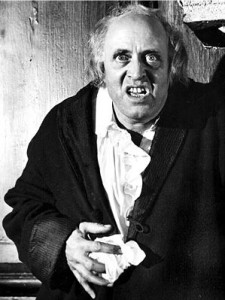
If you want to compete with somebody, run a race.
If you want to change the world, write a book.
* * *
Last week PJ Parrish wrote a TKZ post on Performance Anxiety. I’d like to follow up with a corollary on competition.
Competition is good, right? It gives us a chance to test our mettle against others and see how we stack up. Whatever field we’re in, competition is an opportunity to identify weaknesses in our performance and make a plan to improve. It may even lift us into that rarified atmosphere of winning the prize and basking in the glory.
When thinking about competition, sports always comes to mind. Personally, I believe foot races, specifically the 400-meter races, are the epitome of competition.
The 400-meter race is the longest track event run completely in lanes, so there’s no pushing or shoving. Each competitor runs her own race in her own lane. It’s once around the track, and the winner is easy to identify. She’s not necessarily the person with the best form or the coolest sports gear or even the newest model of Nikes. The winner is the person who crosses the finish line first.
This is obviously an objective decision. The other runners can’t say, “I’m a better runner than she is. I should get the gold medal.” Or “She won just because her coach is famous.” A runner wins a race because she is the fastest competitor in that particular race, and there’s camaraderie and respect among runners no matter where they place.
 * * *
* * *
On the other hand, competition can have a dark side. I’ve read recently that writers are a competitive bunch. That’s not surprising, seeing that we’re publishing books that are in competition with millions of other works, and the desire to excel in the field is strong. Writers want to know how they’re doing in the big publishing picture, so we compare ourselves with others, and sometimes it doesn’t go so well.
You’re toiling away to market your self-published masterpiece, which has seen slow sales and mediocre reviews, when you get word your good friend just secured a lucrative publishing contract for his first book. And then another friend posts to every social media site in the world about the big award she just won. That was the contest you entered and didn’t even make the finals! All of a sudden, feelings of competition turn to jealousy and envy.
But you’re a nice person, right? These writers are your friends, and you think you shouldn’t have these feelings. Well, don’t feel bad. Most authors have experienced some form of writer’s envy in their careers.

So what do we do about it? I like the way Erin Fulmer put it in her 2020 article on professional jealousy
Publishing isn’t a race.
Even if it were, the person who makes it to the next goalpost first is not necessarily going to make it to the one after that in record time.
But this isn’t a competition. There’s no deadline. Sure, the inevitable heat death of the universe is coming someday but until then, it’s anybody’s game.
And it’s not a zero-sum game. Yes, there is competition in publishing—I don’t want to sugar-coat that—but your friend getting a book deal or agent doesn’t meaningfully reduce your chances of the same, unless you are writing something extremely similar and submitting to the same editor/agent. Even then, it’s just as likely that their success will cause your work to be more in demand. A rising tide often does lift all boats.
If you are seeking a writing career, that journey only ends when you stop writing. There’s no finish line, no lifetime wish achievement that means you won like a good little Sim. There’s just the next book.
* * *
So, there you have it. Publishing is not a fair race. It can’t be since the judges (readers, agents, publishers) assess a writer’s work through the filter of their own backgrounds, tastes, and opinions. For example, I have a friend, a well-known writer, who entered her work in a writing contest some years ago. It was the kind of contest where several judges score the work and the entrant receives the results. Two of the judges scored her work in the 90’s and the third one rated her in the 50’s!
So maybe we need to adjust our perspective. As authors, we’re here to enhance the human experience through the written word, and we each do it in our own way. We’re a community, not combatants. We get to choose the lane we run in and how we want to run the race.
Envy tells us that success is more important than the journey. But if we truly love what we’re doing, we’ll seek success while finding the real joy in the writing. And with each circuit of the track, study and hard work will make us better. And in the long run, maybe that’s where the gold in the gold medal lies.
* * *
We’re fortunate that here at TKZ we have a community of contributors and commenters who go out of their way to offer suggestions and support for each other. A writing community at its best.
So TKZers: Do you feel that you’re in competition with other authors? Have you ever dealt with feelings of envy or jealousy of other writers? How do you handle them? What advice would you give to prospective authors, especially young ones, who may be feeling the same emotions?



